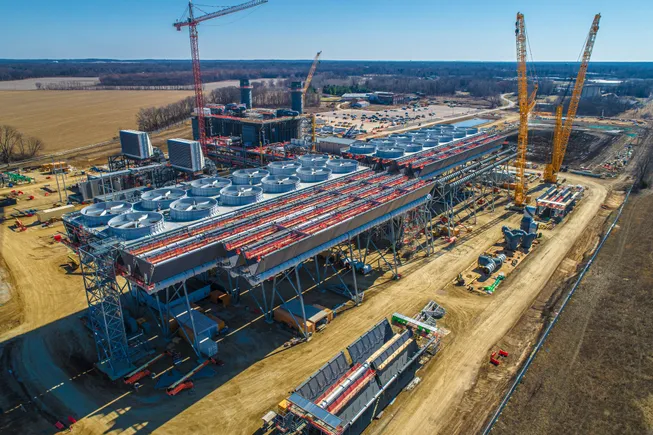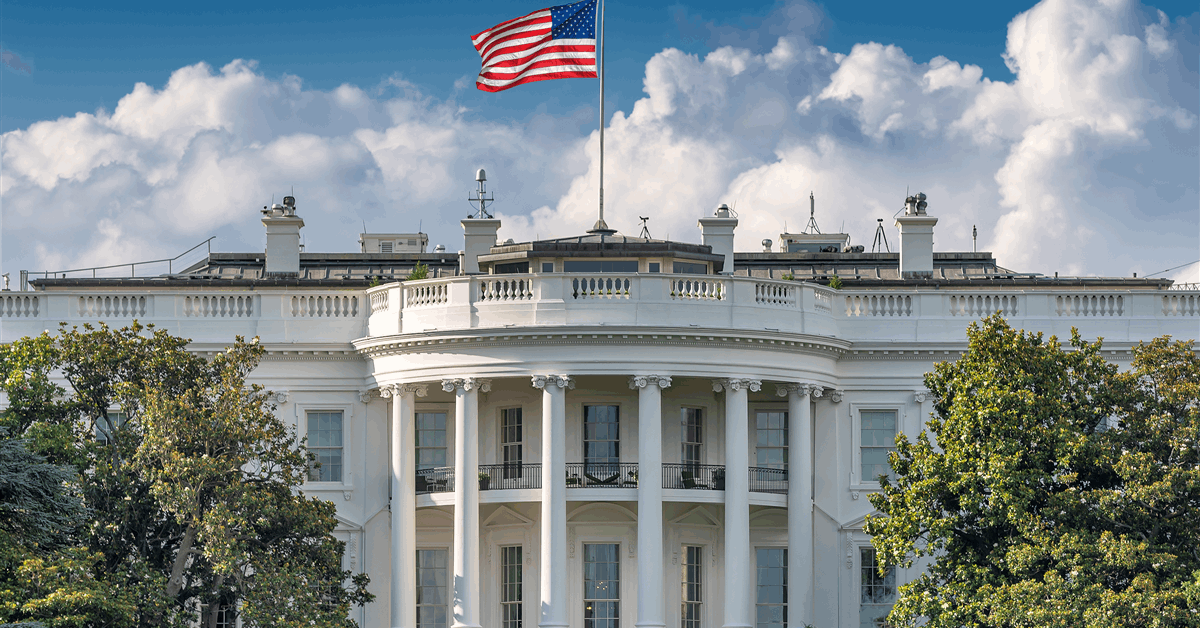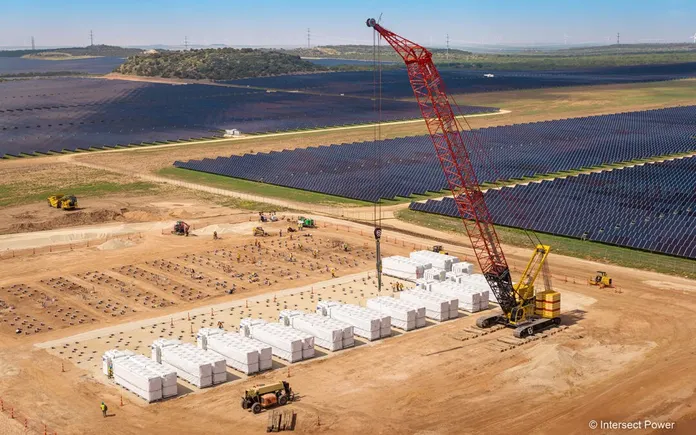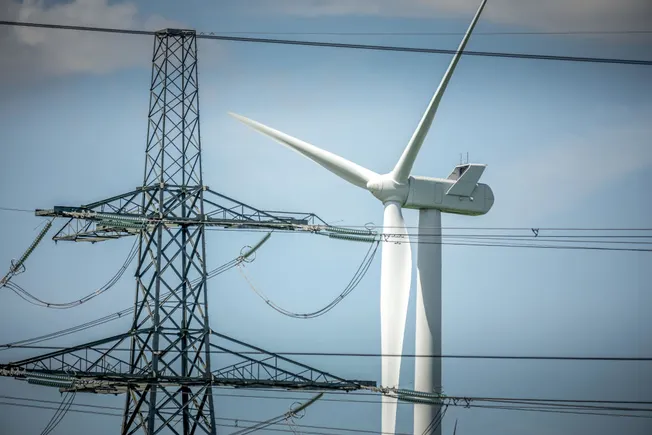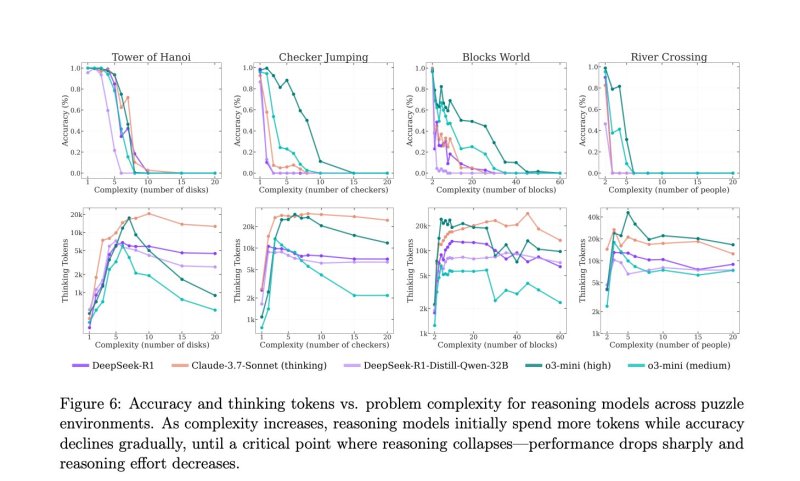
Israel launched airstrikes across Iran on Friday morning, targeting nuclear facilities and killing senior military commanders in a major escalation that could spark a broad war in the Middle East.
Explosions were heard across Tehran, Natanz – home to a key atomic site – and other cities, according to local and social media. Israeli Prime Minister Benjamin Netanyahu said Israel – which used 200 air force planes and said it hit around 100 targets – had “struck at the heart of Iran’s nuclear enrichment program.”
The head of the Islamic Revolutionary Guard Corps, Hossein Salami, and the military’s chief of staff, Mohammad Bagheri, were both killed, according to Iranian media. At least two other senior IRGC members also died.
The United Nations’ atomic watchdog said there were no indications of increased radiation levels at Iran’s main uranium-enrichment site of Natanz, an early sign that the strikes have not penetrated the layers of protecting the Islamic Republic’s nuclear stockpile.
Still, Israel pledged more attacks, with Prime Minister Benjamin Netanyahu saying they “will continue for as many days as it takes to remove this threat.”
Iran immediately vowed to retaliate against Israel and, possibly, US assets in the Middle East. Oil surged around 13%, though later pared its gains, while investors bought haven assets such as US Treasuries and gold.
According to Israel, Iran sent a wave of drones toward the Jewish state, a journey which typically takes several hours. Jordan said it intercepted some of them over its airspace. So far, there are no signals that Iran is preparing to launch ballistic missiles, which travel much faster than drones.
Some 50 injured civilians were transferred to one hospital in Tehran, Iranian state TV said, adding that a number of residential buildings in the capital’s suburbs were attacked by Israel. Iran hasn’t yet released an official death toll or given an overall figure for the number of civilian casualties.
Netanyahu said the opening strikes were “very successful,” adding that Israelis would need to prepare for a retaliation and prepare to spend long periods in shelters.
Iran’s Supreme Leader Ayatollah Ali Khamenei said Israel will “pay a very heavy price” and should “expect a severe response from Iran’s armed forces.”
Netanyahu’s government ordered the strikes in apparent defiance of US President Donald Trump, who had said on Thursday he didn’t want Israel to attack Iran. Trump said his administration remained “committed to a Diplomatic Resolution to the Iran Nuclear Issue!” Trump had also suggested he didn’t think an attack was imminent.
Hours after the strikes, Trump told Fox News he was aware of Israel’s action before they happened and that he hoped Iran would continue negotiating a nuclear deal.
“Iran cannot have a nuclear bomb and we are hoping to get back to the negotiating table,” Trump said to Fox. “We will see. There are several people in leadership that will not be coming back.”
The US and Iran countries were meant to meet for their next round of nuclear talks on Sunday in Oman. It’s unclear if those negotiations will still happen. Oman’s government – in the first comments from a Gulf state – said Israel’s actions were reckless and would undermine regional security.
Other Arab states echoed those comments, including Saudi Arabia, the United Arab Emirates and Qatar.
The US was “not involved” in Israel’s strikes, Secretary of State Marco Rubio said. Rubio warned Iran against targeting US interests or personnel in retaliation.
The UK’s Prime Minister Keir Starmer urged “all parties to step back and reduce tensions urgently” and said “escalation serves no one in the region.”
The attacks on Iran risk plunging the Middle East – which has been mired in various conflicts since militant group Hamas attacked Israel from Gaza in October 2023 – even deeper into crisis and hitting the global economy.
“Risks are high this will escalate into a broader regional conflict,” say Bloomberg Economics analysts including Jennifer Welch, Adam Farrar and Tom Orlik. The clearest hit to the global economy will come via higher energy prices, they said.
While Iran said its oil refineries and storage tanks weren’t damaged, Brent crude was up by 4.9 percent to $72.75 a barrel as of 3:25 p.m. in Singapore.
“Israel’s alarming decision to launch airstrikes on Iran is a reckless escalation that risks igniting regional violence,” Senator Jack Reed, the top Democrat on the Senate Armed Services Committee, said in a statement. He said Trump and other nations need to push for “diplomatic de-escalation before this crisis spirals further out of control.”
Republican politicians refrained from criticizing Israel and largely said the country was provoked by Iran.
Israeli Defense Minister Israel Katz said it was a “preemptive strike” involving missiles and drones.
Tehran has repeatedly insisted that its atomic activities are for peaceful, civilian purposes only. But it has significantly expanded uranium enrichment since 2019 – a response to Trump’s withdrawal the year before from a 2015 nuclear deal signed under Barack Obama’s administration.
Efforts by Trump to forge a new deal since he returned to power in January have made stuttering progress. The two sides have struggled to bridge their main dispute. The US – along with Israel – argues that Iran must not be allowed to enrich uranium, while Tehran had said it must retain that right. The Islamic Republic says it needs to process uranium, at least to a low level, for civilian purposes such as fueling nuclear power plants.
Iran had ratcheted up tensions on Thursday, when officials announced they would inaugurate a new uranium-enrichment facility. That was after the International Atomic Energy Agency – the United Nations’ atomic watchdog – said Iran wasn’t complying with its international obligations. The IAEA’s move set Iran up for a potential renewal of widespread UN sanctions.
“The US has been trying to negotiate, but it’s not going anywhere,” Matt Kroenig, senior director of the Scowcroft Center for Strategy and Security at the Atlantic Council, said in an interview. “There was no deal to be had.”
Israel closed its airspace until further notice, while Iran halted operations at its main airport in Tehran. The two states, along with neighboring countries including Iraq, have restricted and re-opened their airspaces several times since Oct. 7, 2023, when Hamas attacked Israel.
Israel has been bombarding and blockading Gaza for the past 20 months as it tries to destroy Hamas. The Palestinian group is backed by Iran and designated a terrorist organization by the US and European Union.
Iran and Israel have been locked in a shadow war for decades with Tehran – which doesn’t recognize the state of Israel – using proxy forces such as Hezbollah in Lebanon, Hamas in Gaza and the Houthis in Yemen to attack the Jewish state.
Israel has in turn been accused of being behind a series of assassinations and covert attacks on Iranian soil, many of them targeting nuclear scientists.
The two countries engaged in unprecedented, direct missile and drone attacks on each other twice last year, in April and October. Each time, Israel responded to Iranian strikes – most of which were intercepted – with some of its own.
Israel, however, refrained for hitting Iran’s nuclear facilities, instead concentrating on military targets such as air-defense systems and missile-making factories.
This is the first time Israel has decided to go after Iran’s atomic facilities, which it views as an existential threat, with airstikes.





